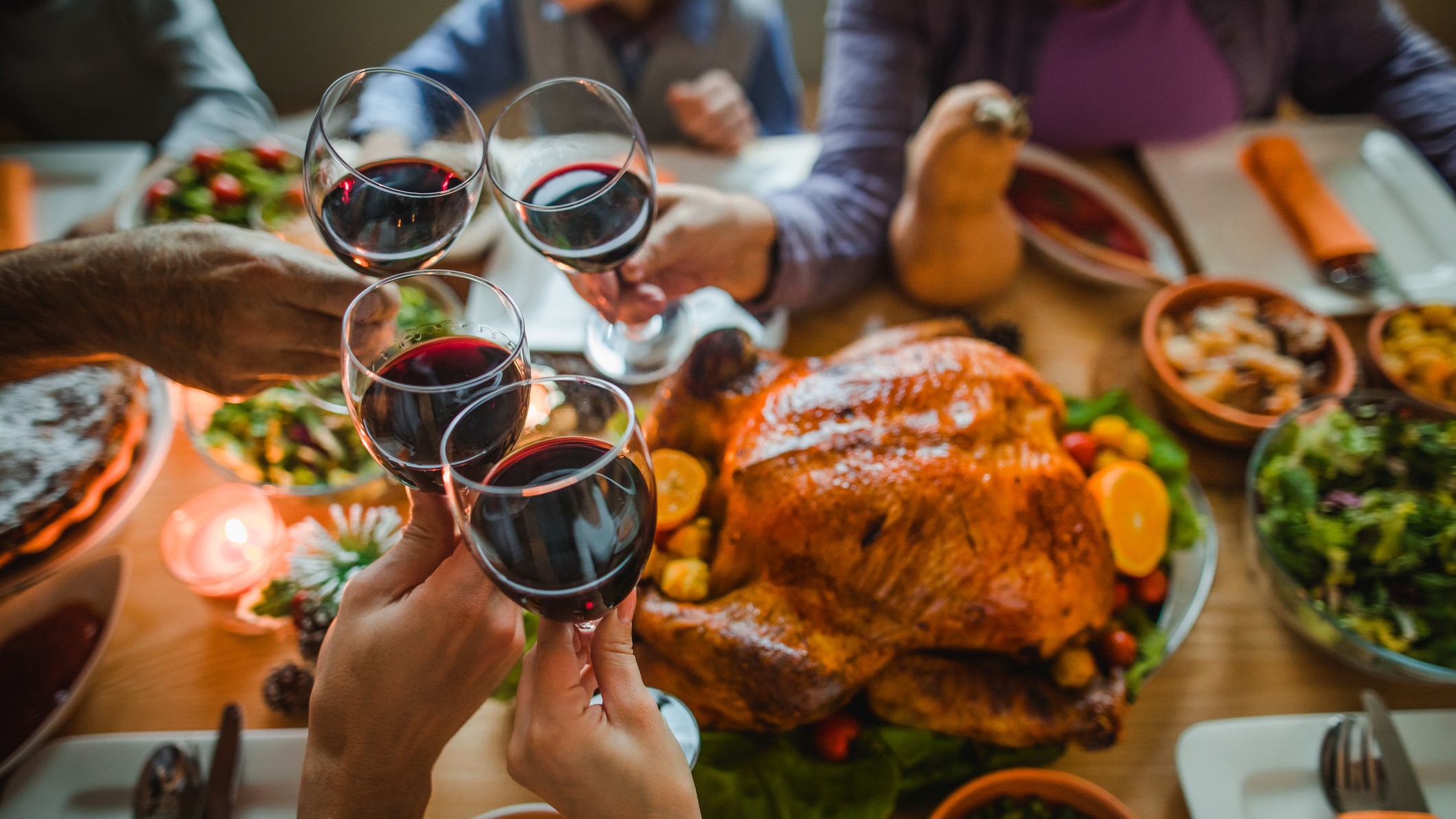Here's what happens to your body if you eat 1,000 extra calories a day
File this under ‘enjoying Thanksgiving or the holidays’

If you’re looking for an article that tells you to avoid carbs and fats this Thanksgiving, you’ve come to the wrong place.
We believe fitness is far more than a number on a scale, and taking days off to enjoy the holidays with your family and friends is as important as training hard. But what happens if you turn off that mental calorie counter over the Holiday season, and enjoy those extra slices of pie? According to new research, not all that much.
A study published in the American Journal of Physiology — Endocrinology and Metabolism looked at the effects that short-term overfeeding had on your body. To do this, researchers from Deakin University in Australia looked at the effects of overeating in eight healthy male individuals with an average age of 22.
If you're doing your Christmas shopping early, or just looking for some great deals as you sit back on the sofa, keep an eye on our Black Friday deals roundup. From the best Black Friday Apple Watch deals, to the best Amazon Black Friday deals each day, we've been hunting for the best sales so you don't have to.
For the experiment, the men were placed on a high-calorie diet, approximately 1,000 calories more than the recommended daily amount, to look at the effects overeating has on the body after five days, and then after 28 days.
The participants' weight, fat mass, blood sugar, and insulin levels were measured before the experiment began, and at five days and 28 days. The high-calorie diet consisted of snacks, fizzy drinks, and chips.
The results found that after five days, the men’s visceral fat (the fat the accumulates around the abdominal organs) had increased by 14%, but there was no other real effect on the body. Researchers found that none of the participants displayed any significant weight gain during the five days of overconsumption.
After 28 days of overeating, however, things weren’t looking as rosy. The participant’s fat mass increased, and on average, the men had gained around 3.5 pounds. They also saw an increase in insulin resistance, which can increase your chances of conditions of diabetes.
Sign up to get the BEST of Tom's Guide direct to your inbox.
Get instant access to breaking news, the hottest reviews, great deals and helpful tips.
While it’s important to note that real conclusions cannot be drawn from such a small experiment, especially where the sample was all-male and conducted on adults with a healthy BMI, the researchers concluded that the body can cope with short periods of increased calorie consumption without any significant damage.
Our bodies are pretty damn smart. So during periods of overeating, the body adjusts the metabolism based on energy needs. Researchers were quick to note that while they weren’t encouraging regular five-day binges, the study does suggest that relaxing and overindulging a little over the holidays won’t have any long-term setbacks for your health goals.
If you do find yourself craving some green vegetables, or a killer workout or two after Thanksgiving, we’ve found some that’ll help get you going:
Tone your abdominal muscles with the Lily Sabri 7-day ab workout or the Pamela Reif six-pack ab workout. Or if you are already trying such exercises, then here's the one ab exercise you should stop doing now. And if you're stuck a desk for a while then here are 5 exercises to do if you sit down all-day .

Jane McGuire is Tom's Guide's Fitness editor, which means she looks after everything fitness related - from running gear to yoga mats. An avid runner, Jane has tested and reviewed fitness products for the past five years, so knows what to look for when finding a good running watch or a pair of shorts with pockets big enough for your smartphone. When she's not pounding the pavements, you'll find Jane striding round the Surrey Hills, taking far too many photos of her puppy.
